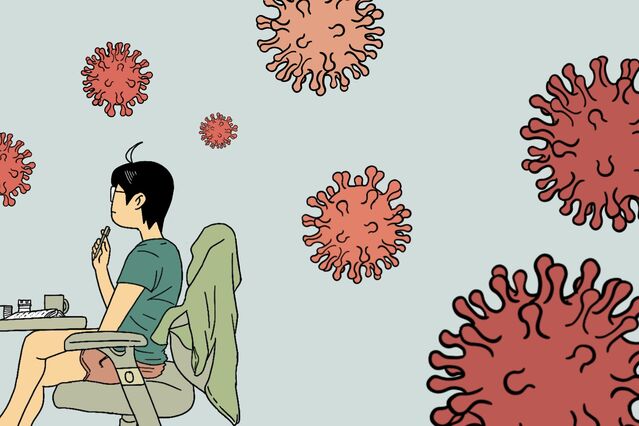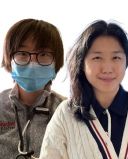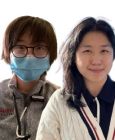Coronavirus Disease 2019
Three Important Lessons From the Year of COVID-19
We must reflect on what we’ve learned as a society to prevent future tragedies.
Posted December 28, 2020 Reviewed by Matt Huston

COVID-19 has etched itself into our collective consciousness, and its effects will linger long after the pandemic is over. In this context, 2020 will be a period that future journalists, economists, historians, and artists will try to make sense of in a way that we—drifting haplessly within the current of time—may not be able to envision.
Still, by reflecting on what we've learned, we can take steps to prevent further tragedies, now and in the future.
People gravitate toward information that supports their existing beliefs.
The pandemic triggered a torrent of studies examining every conceivable aspect of the coronavirus—its structure, possible treatments, effects on mental health, etc. So much so that it's impossible for a frontline physician to keep track of all the newest studies. However, in addition to the peer-reviewed studies, the pandemic has also given rise to falsehoods and misinformation.
People are more inclined to agree with assertions that fit within their preconceived notions. Confirmation bias may become even more powerful when associated with a desired outcome or an emotionally charged issue, two boxes that COVID-19 checks. During the pandemic, acceptance of mask-wearing and physical distancing have largely split into partisan lanes. Counties that voted for Donald Trump in the 2016 election engaged in less physical distancing, on average; Republicans were also less likely to wear masks than Democrats.
But why did public health become so controversial? The polarization of American politics has become a huge risk factor for the collective health of the U.S. To prevent a future health disaster, we must decouple public health from political identity.
"A single death is a tragedy; a million deaths is a statistic."
Since the beginning of the pandemic, we've blasted past milestone after milestone in the COVID-19 death toll. By December, the number of deaths related to COVID-19 had reached 300,000.
It's been such a long time since the United States has reckoned with a national mass-fatality event of this magnitude that journalists have resorted to analogies to historic tragedies to help readers make sense of the numbers.
For example, in late April 2020, journalists reported that U.S. coronavirus deaths had surpassed the number of Americans killed in the Vietnam War (58,220 dead). In December, writers noted that daily COVID-19 fatalities had begun to exceed that of 9/11 (2,977 dead). And yet, despite the journalistic devices, the greater the number of victims, the more abstract the tragedy becomes.
In a previous column, I referred to a study by the data consulting agency Civis Analysis, which analyzed how different messages impact an individual's willingness to receive the COVID-19 vaccine. Messages that focused on the greater good, such as enabling a faster road to economic recovery or providing a community benefit, were at best ineffective, or at worse, generated backlash among the participants.
The most effective message increasing a participant's willingness to receive a vaccination followed the theme of the "personal message," which shared the story of a young American who died from COVID-19.
One life cut short can evoke a tremendous sense of tragedy, especially if we knew that individual personally. Until relatively recently, humans were tribalistic creatures with a limited social circle to love, to care for, and—by extension—to mourn. Therefore, I believe that the true tragedy of 300,000 deaths exceeds our emotional capacity; if we were able to feel so deeply, we would short-circuit under the terrible weight of our collective loss.
But if we concentrate our feelings on individuals, whether through personal acquaintance or by telling the stories of the pandemic victims—we can mobilize the public empathy for productive use, including encouraging individuals to receive COVID-19 vaccines when they become available to the wider public.
Science can do amazing things with enough budget, manpower, and public support.
Previously, the mumps vaccine held the distinction of being the most quickly developed. This feat took four years back in the 1960s, when clinical trials required far less documentation and bureaucratic oversight. In 2020, during the most scrutinized vaccine development process in history, the Pfizer-BioNTech SARS-CoV-2 vaccine blew that record out of the water.
Pharmaceutical testing in humans requires three phases, with an increasing amount of participants and funding needed to get to the next level. To this end, Operation Warp Speed injected $10 billion into efforts to develop the COVID-19 vaccine, and thousands of volunteers signed up for the trials. The vaccine developers, flush with funding and public support, could sign up participants and run the phases in parallel.
Perhaps we could utilize the scientific and human lessons from the vaccine to jumpstart ongoing efforts to develop vaccines for other deadly viruses, such as HIV. If our society continues to provide our best scientists the time, funding, resources, and human interest to tackle our world's biggest problems, then the sky's the limit.
As challenging 2020 has been, there's no guarantee that 2021 will be better. That's all the more reason we need to learn from our experiences, apply the lessons into smart and effective public policy, and strive together for a more positive future.
References
“Both Republicans and Democrats Cite Masks as a Negative Effect of COVID-19, but for Very Different Reasons.” 2020. October 29, 2020. https://www.pewresearch.org/fact-tank/2020/10/29/both-republicans-and-d….
Gollwitzer, Anton, Cameron Martel, William J. Brady, Philip Pärnamets, Isaac G. Freedman, Eric D. Knowles, and Jay J. Van Bavel. 2020. “Partisan Differences in Physical Distancing Are Linked to Health Outcomes during the COVID-19 Pandemic.” Nature Human Behaviour 4 (11): 1186–97.
Crystal Son, M. P. H. 2020. “How to Talk about the COVID-19 Vaccine.” September 8, 2020. https://www.civisanalytics.com/blog/healthcare/how-to-talk-about-the-co….
“Vietnam War U.S. Military Fatal Casualty Statistics.” 2016. August 15, 2016. https://www.archives.gov/research/military/vietnam-war/casualty-statist….




